Pacific Northwest Meditation Community Welcomes All People Into Our Diverse Sangha
Written by: Trina Truong and Rob Morse
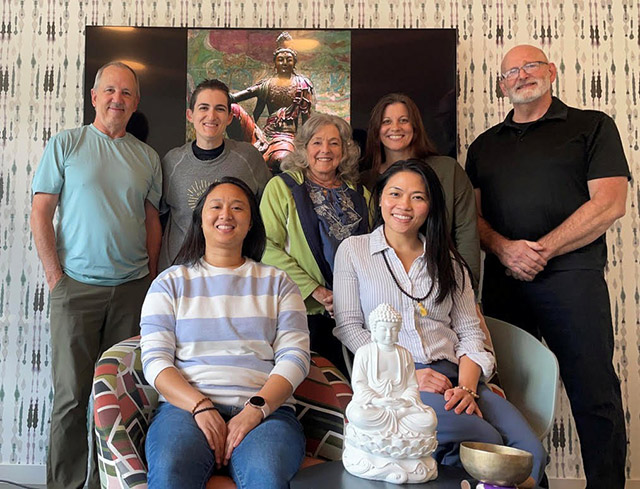
Pacific Northwest Meditation Community leadership: front row L to R: Rachelle Gabrang, Trina Truong; back row (L to R): Rob Morse, Kat Selah, Candle Summers, Elowyn Loomis, Jonathan Johnson.
Photos courtesy of Pacific Northwest Meditation Community
Pacific Northwest Meditation Community is a new inclusive sangha in Portland and online, created to support mindfulness meditation, and also the exploration of the variety of Buddhist traditions and their collective framework for meditation, mindfulness, and spiritual growth.
Although our focus is on vipassana meditation, we expand and explore beyond this practice through inviting guest teachers from other Buddhist lineages.
Our mission is to cultivate a sense of belonging for new and experienced practitioners from the widest possible range of backgrounds, ages, races, ethnicities, cultures, sexual orientations, gender identities, socioeconomic classes, religions, political views, and abilities.
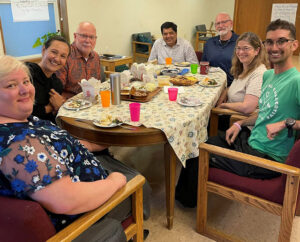
Our environment is one of exploration of the many ways to reach one’s spiritual aspiration of true liberation. We do not adhere to one lineage, and we do not have a single spiritual leader. We have three core teachers, as well as rotating teachers from many Buddhist traditions, who come and share their teachings and meditation practices.
We believe that this enriches the learning, and also helps community members find a path that resonates with them most. It also broadens our understanding of the dharma.
We meet each Saturday at 4:30 p.m. at the Multnomah Friends Meeting House, located at 4312 SE Stark Street, Portland Oregon, 97215. There is generally a half-hour guided meditation, a half-hour dharma talk, and a half-hour shared insights and questions session. These are then followed by an optional social hour with food and beverages.
Registration for our online presence is through this link. We are a 501-c3 registered non-profit, and a donation-only based entity.
Our affinity groups, local sitting groups, and other activities include:
NeuroSangha is a space for neurodiverse people to connect online through mindfulness, in ways respectful of our different manners of thinking and being. We embrace and respect a wide variety of neurodivergence, and aim to be a refuge for brains that work differently from what society expects.
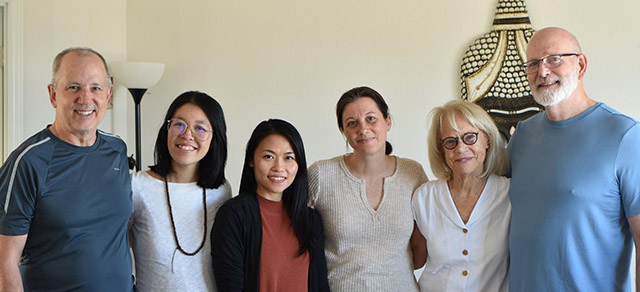
Neurosangha meets on Zoom every 2nd and 4th Tuesdays at 6:30 p.m. Typical meetings include two non-guided 10-minute meditations, sharing our meditation experience, and exploring different meditation practices. If you’re interested or want more information, click here.
Be Queer Now is a safe and welcoming sangha for those who live on the LGBTQ2IA+ spectrum, and who are interested in meditation. We meet on Zoom the 2nd and 4th Sundays each month from 6:30-8:00 p.m. All are welcome, regardless of meditation experience, ethnicity, social or financial standing, gender identity, political leaning, relationship structure, religious identity, etc. Our request for participation in this group is that each individual identifies somewhere along the LGBT2QIA+ spectrum. For more information: bequeernowpdx@gmail.com.
Local sitting groups are being formed in the Portland area. The intent is to establish neighborhood sanghas that can sit independently, and also benefit from engagement with the Pacific Northwest Meditation Community.
Last fall the community led a three-day retreat at Joshua Tree Park, California, and we anticipate future such retreats.
Pacific Northwest Meditation Community also sponsors dharma classes and sutra studies. To contact us please email to PNWMCommunity@gmail.com.
Many sangha members have expressed appreciatioin about the approach being used by the Pacific Northwest Meditation Community, including Jordan Volpe.
“I was so relieved to go to PNW Meditation and realize there is a Buddhist center in Portland that sees what I see – a desperate need for this city to have the dharma taught through a social justice framework, by people who occupy different marginalized identities,” Volpe said. “As a marginalized person, I have gotten tired of going from center to center trying to find a teacher who will teach the dharma in a way that applies to me and understands my lived experience, but none, especially in the Insight tradition, have done so. Instead of using Buddhism to avoid addressing oppression and its impact on all of us, PNW Meditation teaches Buddhism from the radical perspective the Buddha taught- directly addressing the reality of oppression and suffering to find liberation. I am glad to have a home in Portland that is trying to build that kind of community here.”
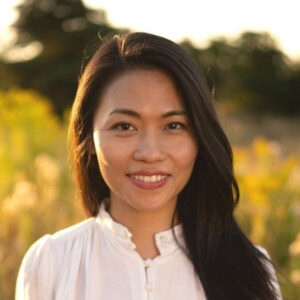
Teacher Trina Trong, one of the teachers, said, “As I reflect on the year that has passed, it has been a humbling journey of endings leading to new beginnings, which led to the birth of the Pacific Northwest Meditation community. Our sangha was born out of this wish for betterment, of goodwill, and with the desire to realize a community that is inexhaustibly committed to practicing inclusion.”
Three Core Teachers
Trina Truong was raised in a Buddhist family in Vietnam, and in her teaching merges Buddhist thoughts of the East and the West. Her study and practice are influenced by Zen Master Thich Nhat Hanh, Sri Lankan Monk Bhante Guanaratana, and Chan Master Sheng Yen.
Truong has trained extensively in trauma-sensitive mindfulness and is an MBSR qualified teacher level 1 from the Mindfulness Center of Brown University. She offers retreats, classes and talks throughout the Pacific Northwest. Join her live guided meditations and reflections online daily at 6:30 a.m. Pacific Time at this website.
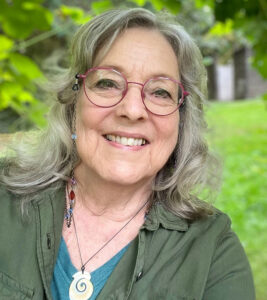
Candle Summers has practiced meditation for over 40 years, with her root teachers Kamala Masters and Steve Armstrong. She completed Spirit Rock’s two-year Community Dharma Leader program in 2001. Her Theravada background includes the teachings of Anagarika Munindra, sayadaws U Pandita and U Tejaniya, Gil Fronsdal, Mark Nunberg, and more. Summers offers a monthly insight metta meditation on Mondays through this website.
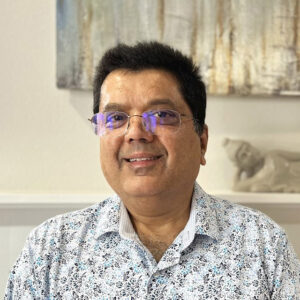
Alpesh ‘Al’ Parikh’s journey into mindfulness started in 1991 when he attended his first Vipassana retreat in India. Parikh has translated many insights from meditation and retreat experiences to the corporate setting, particularly to the healthcare industry. Parikh is a graduate of the two-year Mindfulness Meditation Teacher Certificate Program, taught by Tara Brach and Jack Kornfield. Parikh offers training programs incorporating basic and advanced practices of mindfulness, in the workplace and in community settings.
Ongoing and Future Guest Teachers
Jason Bartlett emphasizes a practical approach to dharma, drawing on teachings from Korean Seon, Chan, Pure Land, Vajrayāna and Theravāda Buddhism. His specializations include prajñāpāramitā, emptiness and non-dual practices, liberating insight work, recollections of the Buddha, breath meditation methods and jhana.
Nelly Kaufer teaches Reflective Meditation; an open, unstructured way of meditating that invites examination of one’s life through the practice. In 2023 she co-authored the book, “Reflective Meditation: Cultivating Kindness and Curiosity in the Buddha’s Company.” Kaufer is founder and lead teacher at Pine Street Sangha, a meditation center in Portland. Understanding the dominance of patriarchal influences in the way Buddhism is normally taught, she has created a more “feministic” approach in her teaching style.
Linda Rose began her meditation practice almost 50 years ago, and still considers herself a beginner. For 35 years she lived in San Francisco and was an active member of Mission Dharma. In 2014, she founded Eugene Insight Meditation Community and River Wisdom Meditation Community, a community-driven sangha. She was authorized to teach by Howard Cohn, and continues to be mentored by him. Rose is currently the guiding teacher of River Wisdom Insight Meditation Community.
Thay Kozen Venerable Thich Minh Tinh (Thay Kozen) has received transmission in the Vietnamese Rinzai Zen line of Thich Thien An and Thich An Giao. In addition he has studied in Japan with Nanrei Kabori Roshi, in the U.S. with Soyu Mastsuoka Roshi, and in Japan with Doki Suda Roshi. Matsuoka Roshi later transmitted Kozen, after a period of time as the Long Beach Zen Center’s administrative assistant. Kozen is a teacher at the Mt. Adams Buddhist Temple at Trout Lake Abbey.
Scott Tusa was ordained by His Holiness the 14th Dalai Lama as a Buddhist monk at age 28, and spent the next nine years as a monk, deepening his understanding of the dharma, He engaged in solitary meditation retreats, and continued his studies with teachers in India, Nepal, and the United States. His main teachers are Lama Zopa Rinpoche and Tsoknyi Rinpoche. Since 2008 he has been teaching Buddhist meditation in group and one-to-one settings, helping meditators deepen, and develop more confidence in their practice.
Romaine Harris is a certified community health worker, speaker, facilitator, and social change activist. Drawing from her life’s experience with death, loss and grief, she has special insight into processing trauma with ancient and innovative ways of healing. Harris has been a practicing Buddhist for over 45 years, and is currently finishing mindfulness teacher training with Jack Kornfield and Tara Brach.
Trina Truong was raised in a Buddhist family in Vietnam, and her study and practice are influenced by Zen Master Thich Nhat Hanh, Sri Lankan Monk Bhante Guanaratana, and Chan Master Sheng Yen. Truong has trained extensively in trauma-sensitive mindfulness and is an MBSR qualified teacher level 1 from the Mindfulness Center of Brown University.
Rob Morse is a member of the sangha leadership of the Pacific Northwest Meditation Community.
